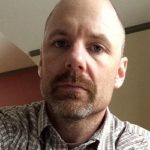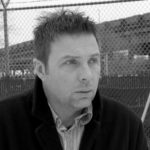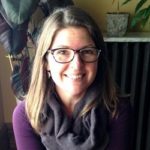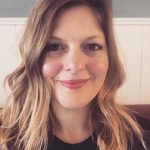Best Practices
 — a loose companion to a previous essay about teaching —
— a loose companion to a previous essay about teaching —
“The truth knocks on the door and you say, ‘Go away, I’m looking for the truth,’ and so it goes away. Puzzling.”
— Robert M. Pirsig, from Zen and the Art of Motorcycle Maintenance: An Inquiry Into Values
I understand why a lot of teachers lust after “best practices.” I get why so many of us grasp at supposedly foolproof methods for making students do exactly what we want them to do. A lot of us have been taught that assigning work then rewarding or punishing students according to how they do it is the gist of teaching. (A lot of students, understandably and heartbreakingly, believe those rewards and punishments are the gist and evidence of learning.) From a certain perspective it makes sense for us to seek information about how to reward and punish as effectively as possible. It also, in some ways, makes sense for administrators to dictate practices they believe will create consistent punishments and rewards throughout a particular course, major, college unit, school, district, or state. The actual of process helping fellow human beings learn — as opposed to the process of meaningless, faux-rigorous punishing and rewarding — is a task of privilege that’s incredibly difficult to do well. I know my own version of feeling desperate for some method or approach that just works.
But the longer I work at teaching and try to figure out what it even means “to teach,” and the more carefully I observe how human beings make decisions, the clearer it becomes to me that most teachers, including college instructors and professors, aren’t anywhere close to ready for The Answers a lot of us covet. Those of us who still have questions about teaching are either pursuing the wrong ones or responding to the right ones with indifference and contempt. A lot of us just want someone whose credentials we take seriously to tell us what to do (even though we feel deeply indignant and criticize students when they ask us for the same thing). A lot of us want “action steps” but have no interest in examining how our beliefs and intentions will affect how we implement those actions, or what results our version of implementation will produce.
Some of us are done asking questions because we’re certain we’ve got all the teaching knowledge we need. Why keep looking if we don’t have to, right? What else of worth could there possibly be to know? When we’ve stopped (or never started) being curious like that, it’s generally not because we’ve landed on thoughtful responses to important questions. It’s probably because we’ve found quasi-intellectualized confirmations of self-serving biases, or damaging yet effective methods for enforcing student compliance. It’s almost certainly because we value getting students to comply over helping fellow human beings learn.
A general sense of superiority based in topic-specific expertise can kill curiosity all the way dead. That’s part of why sincere inquiry drives very little conversation among teachers (and especially among professors) about teaching. Hang out around groups of teachers at any level, and conversation will almost certainly devolve beyond productive commiseration and into a complaint session that fetishizes “good students” and frames most others as adversaries, disappointments, and problems. Almost no one will have the courage to ask, “But what about us? What could we do better?” Real self-aware curiosity plays almost no role in the constant hunt for and dissemination of what passes as best teaching practices. The whole best-practices scene enables many teachers and administrators to perpetually ignore what actually matters.
At least that’s how I see all that stuff. I’ve earned my perspective through lived experience and self-examining inquiry. I believe it’s credible. I’ve also been very wrong about a lot of things I thought were credible, and I’ve changed my mind about many teaching matters since I started doing the work in the late ‘90s. And who am I to slag anyone else for a sense of superiority or lack of curiosity? Good grief. I don’t sound super inquisitive in those first few paragraphs, do I? Everything I typed up there could accurately be perceived as nothing but a wordy, judgy string of pretentious declarations. Probably sounds familiar to some folks who know me in person. I’m good at coming across as if I believe I’m smarter than most other people, especially in conversations about teaching. I don’t. I’m actually fairly convinced that I’m not all that bright, and that my hot takes on teaching are mostly defensive compensation for what I don’t know and can’t do. But there’s evidence to suggest I’ve done difficult self-awareness work most people haven’t done and that, despite significant intellectual and perceptual deficiencies, I see and deeply understand some important things most of my human and teaching peers don’t. Or maybe that last bit is another story I tell myself out of defensiveness about my deficiencies.
Regardless, when I got the opportunity to spend part of my UMD spring semester creating professional-development programming focused on teaching and learning, I planned a series of critical dialogues — open-ended, problem-posing conversations — instead of didactic lectures, lessons, or presentations. I’ve obviously got plenty to say about teaching. In venues such as personal essays I’m not shy about just shouting at and provoking people in sentences that get tough to make sense of because they include way too many multi-syllabic words strung together in clauses that keep going and getting stacked up in ways that make a reader’s brain feel like it’s running out of breath. I say sometimes I have no problem just expounding pretentiously and at length about teaching. But as the Spring 2019 University of Minnesota Center for Educational Innovation Faculty Teaching Fellow at UMD I had no interest in talking at anyone.
My basic job in the fellowship was to complement existing CEI and UMD Center for Excellence in Teaching and Learning programming that supports student learning by helping educators get better at what we do. My intention was to model and share the potential of critical dialogue as a teaching and learning tool. I had a bunch of reasons, but two were most prominent: 1. experience tells me well-facilitated dialogue about how intentions and beliefs drive actions helps all participants build self-awareness; 2. experience also tells me that anyone who truly wants to teach more effectively — who really wants to help fellow human beings build and apply knowledge — needs enough self-awareness to deeply understand why they’re going to do something before they even start making decisions about what to do or how to do it.
Dialogue definitely isn’t the only effective method for fostering lasting learning. It’s a powerful one. It’s the one I’m most interested in using. Most importantly for my professional-development role in the fellowship, I’ve seen how effective dialogue can be in helping people entitled to dominance understand how our presence affects people obliged to perform subordinate roles. I wrote my doctoral dissertation as an exhortation for all college educators to learn about and account for how we affect students in a hierarchy designed to protect us at their expense. The dialogues I organized and facilitated were an extension of that dissertation work. Everything about how I try to help fellow human beings learn flows from that dissertation work.
My primary fellowship intention was to experiment with a version of what I would do if I got the chance to teach something like an educational-philosophy course designed to engage current and future college-level teachers in deep thinking about the why underpinning any method, practice, etc. As far as I know, very few versions of courses like that exist. Experience tells me they are desperately needed. It’s my dream teaching job. I am grateful for the work I get teaching required first-year and upper-division writing courses. I have trouble understanding how anyone who teaches them can experience them as anything other than an enormous intellectual challenge. I also know what it’s like to want something new. I’ve known for a while that I’d be excited to help college and university educators build rigorous mindfulness. It’s a cool idea. It will most likely result in me continuing to teach required writing courses full of undergrads who are (understandably and heartbreakingly, and much like most of their teachers) more comfortable with meaningless punishments and rewards than with the disorienting process of actually learning real things.
I have not positioned myself well to get the type of position I dream about. Two English degrees and an Ed.D. in teaching and learning from the same school where you’ve taught for a while — which is the tl;dr version of my resume — don’t get a person taken super seriously as a candidate for tenure-line work at that school or many others. That’s especially true if you’ve been neither ambitious nor wise in bolstering your unimpressive credentials with publications, presentations, and other work that shows you’re out there doing it, mixing it up with all the other folks striving to sound smarter than each other and gain certain sorts of credibility in each other’s eyes. No one’s ever tried to mentor me in how to do that.
That’s untrue. It’s a flat-out lie. If you’ve been trusting what I say until now, stop. Some very significant people definitely tried and offered to mentor me, throughout my 20s and 30s and well into my 40s, but since elementary school I have been maddeningly impervious to good examples and sound advice. I’ve just never been nearly smart enough to figure out using the present to prepare for a future that doesn’t lead to me regretting how I spent time in my past. I am, as a former department head pleasantly told me and some other folks at a local conference a year or so ago, a pain in the ass. She also advocated for me strongly and gave me some unusually cool teaching opportunities during my eight years as a full-time adjunct instructor — three to five courses every fall and spring, and a lot of significant event and committee work, on 16-week contracts with no benefits or raises from August 2005 until May 2012 — at the College of St. Scholastica. When I asked her to write a letter of recommendation supporting my UMD Ed.D. program application she accepted immediately and told me very directly I should be applying to prominent Ph.D. programs. She is one of a handful of folks who would have given me brilliant career mentorship had I known how to see or accept it.
To get the dialogues up and running I determined a few topics / prompts / guiding questions, created a rudimentary website, scheduled a room and some dates, wrote and sent an initial email invitation to the university community, and hoped people would show up. They did. Not in the numbers I hoped for, but at least two people showed up for all 12 sessions throughout the semester. I think the per-session average attendance was right around four. The most in any session was 11. Each topic got its own week (semester weeks 4, 7, 10, and 13). Each week included three 90-minute sessions (Tuesday morning and Thursday and Friday afternoons) because I wanted to create as many chances as possible for people to fit the sessions into their schedules. By trying to create access I may have eroded attendance at any given session. Same with running the sessions so long into the semester — attendance dwindled as the weeks ground on. On the Monday of every dialogue week I sent an email invitation with a quick description of the week’s topic and a link to the relevant part of the Critical Dialogues website. Someone else might have been a lot more ambitious and clever in their efforts to drive attendance.
I’m generally happy with how I facilitated, but I certainly could have done it more effectively overall and especially during some sessions. While I’m comfortable and experienced leading productively critical dialogues among students, and among men arrested for using violence against women, I’ve never done it among colleagues. It was unspeakably exciting to be doing a version of what I would like to do all the time as a teacher. Every session left me wishing I’d have talked more here or less there, managed a dominant participant here and fostered a tentative one there, documented the conversation differently, or asked different questions, guided the conversation more or less, or just known how to be a different human being.
One of the coolest parts of the entire process is that starting almost immediately during the first Week 4 dialogue and continuing through to the end of the last Week 13 chat, the people who showed up spoke openly, and supported each other in speaking openly, about experiences, perspectives, doubts, fears, frustrations, and successes with a generosity and vulnerability I did not expect. I didn’t think I’d have to force conversation out of people. I didn’t expect them to be jerks to each other. It would be surprising for folks to show up for something billed as a critical dialogue and be combative or unwilling to participate in conversation. I just significantly underestimated the amount of passion that would pour from the folks who spent time and energy to hike across campus, sit in a windowless room, and dig into deceptively difficult questions: What does it mean to teach? Who and what do we emulate in our work as educators? What priorities do our syllabi (syllabuses?) declare? How do we identify student learning?
I was also especially grateful for the relative diversity in identities and campus roles among participants. Throughout the semester they included grad students, staff members, term faculty, and tenure-line faculty from way more colleges, programs, and disciplines than I expected. That mixture of roles was really important to me. If a college-campus professional development program based in enhancing student learning doesn’t acknowledge staff members as educators, if it intentionally privileges professors’ perspectives over instructors’, or if it excludes future teachers from participating, I have trouble taking it seriously. I suppose a fair number of folks who outrank me have trouble taking my perspectives and fellowship choices seriously. So it goes.
One of my charges in the fellowship is to credibly demonstrate how the work I did helps establish a sustainable long-term professional-development program for UMD faculty members across career stages. I can’t. There are a lot of reasons for that, but they all add up to the same conclusion. I can’t.
I can say that during or after every dialogue, both out loud and on written session-review forms, participants combined to say some version of, “I wish there were more things like this in my department and college, and across campus, where we could talk about our teaching questions and struggles honestly instead of fearfully.”
I can say that in every dialogue smart people in various campus roles spoke very clearly about seeing, feeling frustrated by, and having no idea what to do about counterproductive dominant norms that force them to “teach” in a way they know has nothing to do with helping anyone learn.
I can say that throughout our conversations the practice of assessment — the process of clearly stating what a course is intended to help students learn, then mindfully describing whether they’re learning it — was discussed wisely, as an inherent part of every teaching decision and method, instead of dismissively, as a foolish, extraneous fad. I heard people say out loud that they dream of implementing a narrative alternative to the miserable point- and letter-based evaluation systems that came about during the efficiency-crazed Industrial Revolution and are now talked about as “traditional.” I also heard people say they would never say that out loud in a department meeting.
I can say that multiple people have asked me what the topics for next semester’s dialogues will be, said they’re excited for more conversations, and seemed sincerely sad when I told them the program is finished.
I can say that at the end of this semester I know more people who are down for difficult, honest, productive conversations than I knew when the semester started. My understanding is that many of those folks showed up because they wanted something different from — maybe more authentic than — the professional-development opportunities they’re accustomed to. I’m with them. Experience and my gut tell me there are more of us.
I can say I know there’s a need for types of teaching conversations that don’t happen very often. I know some of the reasons those conversations seldom happen on a large scale. I can’t prove a long-term professional-development program based only or mostly in critical dialogue would be sustainable. I actually don’t think it would have a chance. Not without fundamental changes in campus cultures.
Recommended Links:
Leave a Comment
Only registered members can post a comment , Login / Register Here














No Comments